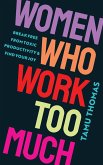By tracing family structures from prehistoric hunter-gatherer societies to modern urban environments, it illuminates how factors like agricultural revolutions, industrialization, and globalization have shaped family compositions and roles. Central to the book's argument is the idea that family structures are not universal or static, but diverse and adaptable systems influenced by cultural, economic, and social forces. This perspective challenges readers to reconsider their assumptions about what constitutes a "normal" family.
The book's global approach examines a wide range of family systems, from polygamous arrangements in some African societies to multi-generational households in East Asia, providing valuable insights for policymakers, social workers, and educators working with diverse populations.
Drawing on evidence from anthropology, sociology, economics, and history, "Family Household" progresses logically through its chapters, exploring historical developments, cultural variations, and socioeconomic factors influencing modern families. Its holistic approach and accessible language make it suitable for both students of social sciences and general readers interested in understanding the complex interplay between family dynamics and broader societal forces.
Dieser Download kann aus rechtlichen Gründen nur mit Rechnungsadresse in A, B, BG, CY, CZ, D, DK, EW, E, FIN, F, GR, H, IRL, I, LT, L, LR, M, NL, PL, P, R, S, SLO, SK ausgeliefert werden.









